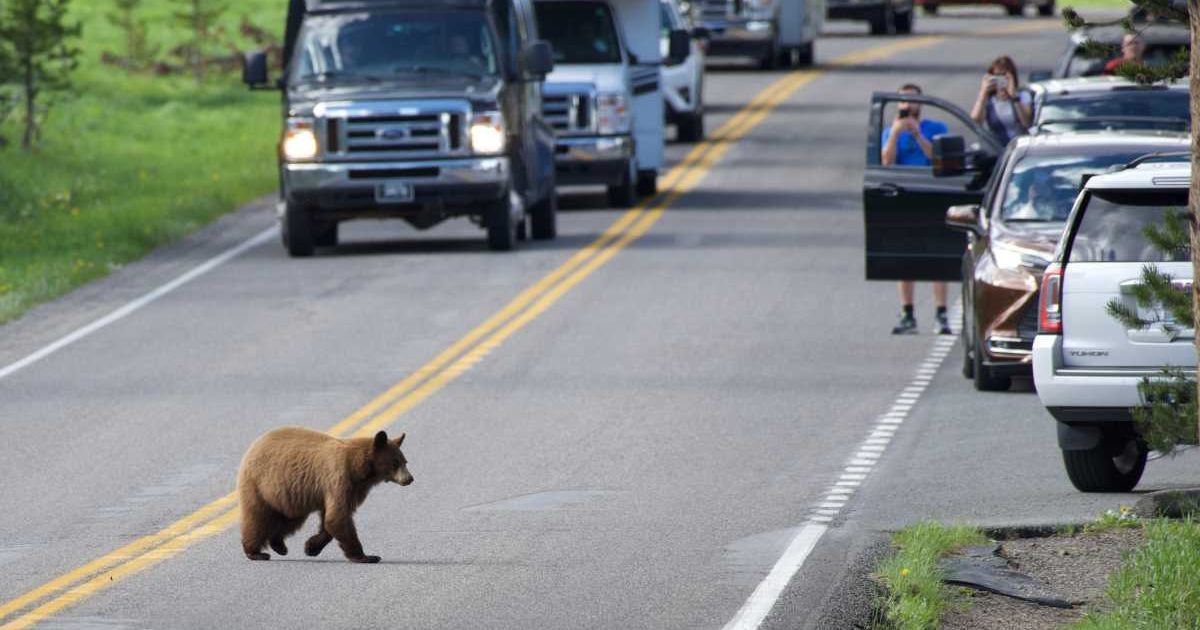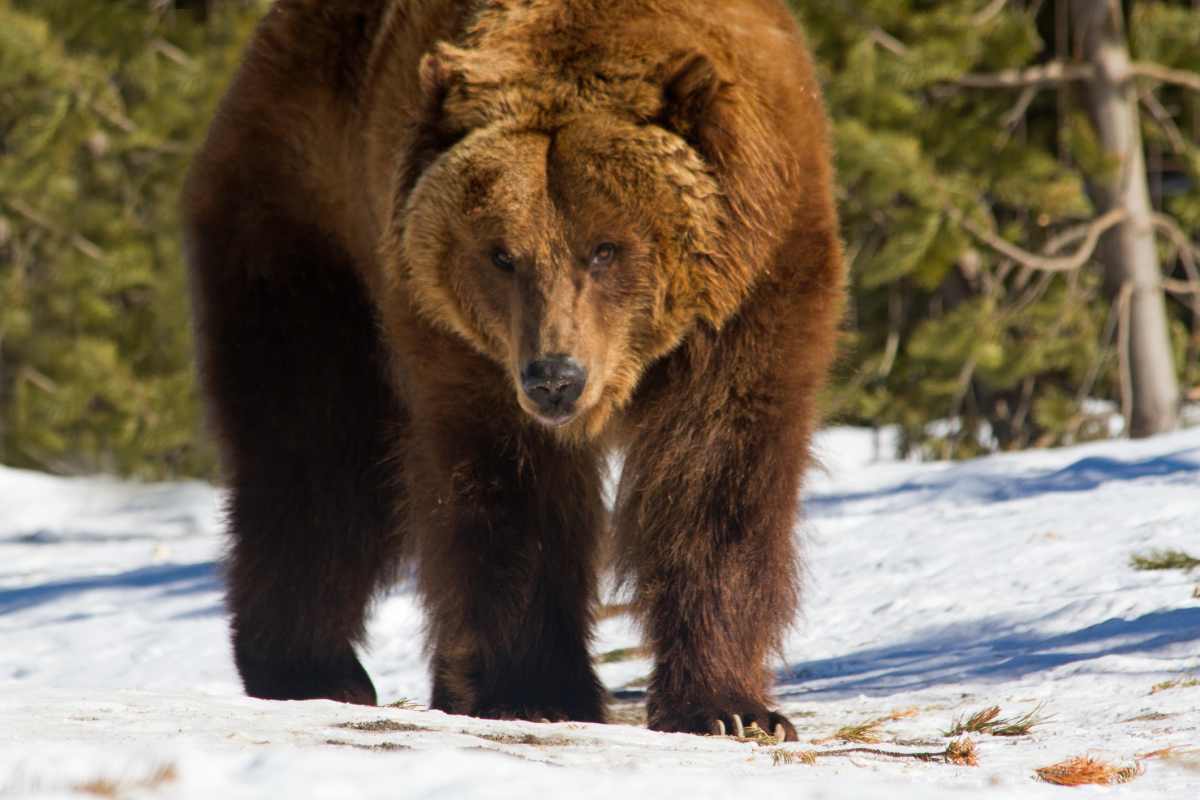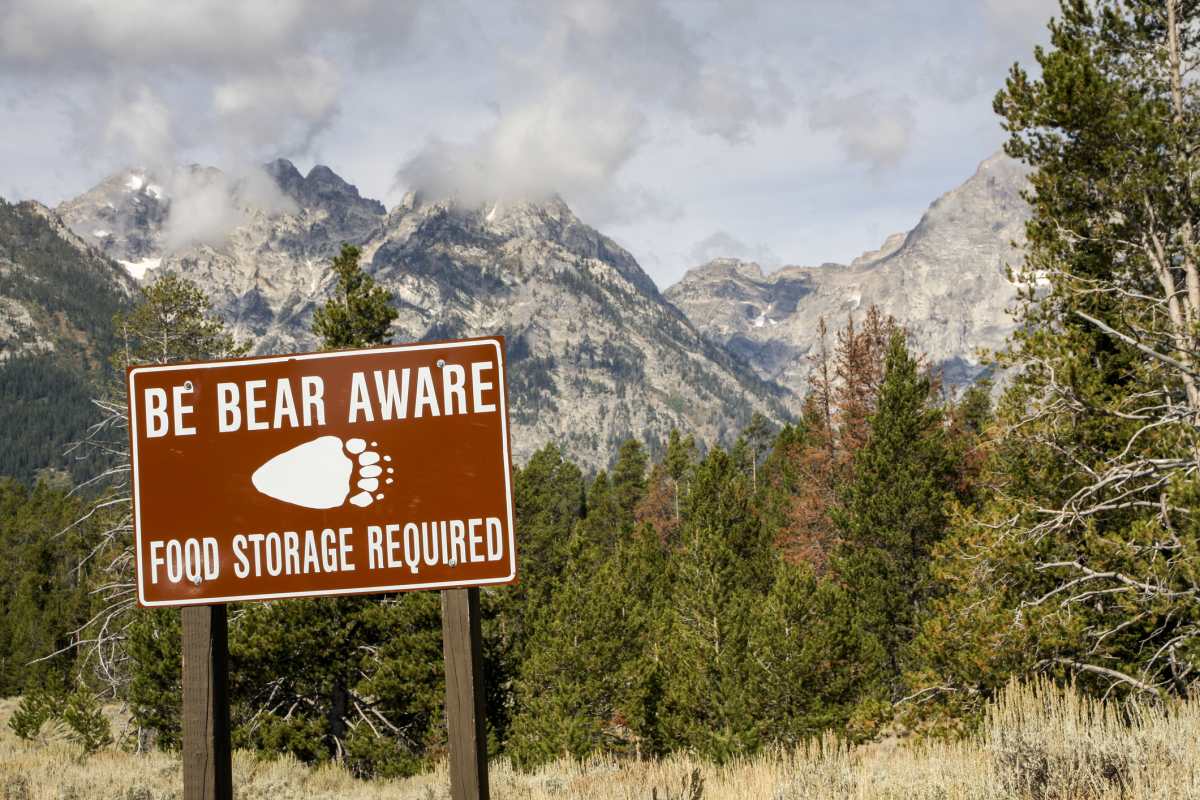Yellowstone Officials Warn Visitors To Carry a Key Item As Hungry Bears Prepare for Winter

It’s that time of the year when Yellowstone National Park turns into a fall fantasyland, with fewer visitors, dwindling sunlight, and wildlife disappearing behind the bushes, maybe a lone hungry wolf feeding on a carcass. The grassy corridors and boardwalks become carpeted with autumn leaves, such as maple, wild rose, and rabbitbrush, surrounding which animals like bison and elk begin their yearly mating or rutting ritual. Meanwhile, the howling winds slap the park’s valleys, lifting trapped moisture that crashes into the mountains, triggering a fierce tailspin of snowfall. For bears, this onset of snow is a call to slip inside their dens and prepare for hibernation, the National Park Service explains.

At the arrival of autumn, bears in Yellowstone start lumbering to lower elevations to start fattening up for the winter. As NPS explains in an Instagram post, bears, during this time, go through an intense feeding period called “hyperphagia,” gaining up to three pounds per day. When winter snow blankets the park in its stunning, quiet haze, all this fat would support them in survival and rest. Pregnant females would utilize these fat reserves in their bodies to birth their cubs and keep them safe and healthy until next spring.
View this post on Instagram
Bears can go for about five to seven months in hibernation, without performing usual bodily functions such as defecating, urinating, or eliminating any waste. Since Yellowstone’s winters are dominated by frigid, harsh temperatures, heavy snow, and ferocious predators, these creatures can’t afford to let anything go to waste. As they doze off in their wintertime caves, dens, or self-dug holes, their bodies effectively manage the fat reserve, breaking it down little by little as and when necessary.
Urea, for instance, is a chemical released in the urine. But since bears don’t urinate during winter, their body uses up the nitrogen in this urea to build proteins, which are then utilized to maintain organs and muscles, per Yellowstone.org. Over the winter, they lose a significant amount of fat but gain lean muscle mass during hibernation. This hibernation episode is of no concern whatsoever to the park’s visitors. But as long as the bears are roaming in the wild, visitors must follow certain precautions to protect themselves from their wrath.

This is especially valid during the autumn season. At this time, bears are desperate to feed their ravenous bellies, which can cause them to become aggressive if they spot humans nearby. The park suggests that visitors always carry “bear spray” when visiting these grounds. “It's very important to be bear aware! Always stay at least 100 yards away from bears, carry bear spray, hike in groups of 3 or more people, and respect any closures and restrictions in active bear management areas,” park officials instructed on Instagram.

Bear spray, the website explains, is a “non-lethal tool specifically designed to deter bears as a last line of defense.” The spray is proven to be highly successful in stopping their aggressive behaviors. An active ingredient in the spray spews a cloud that irritates a bear’s nose, eyes, and lungs, causing significant, temporary pain, which gives sufficient time for the visitor to run away without killing bears.
The park also initiated a campaign called “A Bear Doesn’t Care” to inform the visitors that the onus of protecting themselves lies entirely on their shoulders, in which bear spray is their best and most convenient ally. Whether you are a hiker, backpacker, angler, photographer, wolf watcher, geyser gazer, or even a celebrity, the wild grizzlies or the bulky black bears don’t give a damn about your safety. Because, as the saying goes, don’t expect a bear not to eat you because you don’t eat a bear.
More on Green Matters
Scientists Notice Unusual Movement Among Yellowstone’s Wolves — And Their Pups Were Involved Too
The Latest Plan to Save Our National Parks? TikTok Models Making Them Look Sexy
Yellowstone Worker Shares Bizarre Complaint From Tourist — Asks Them To 'Train The Bears'